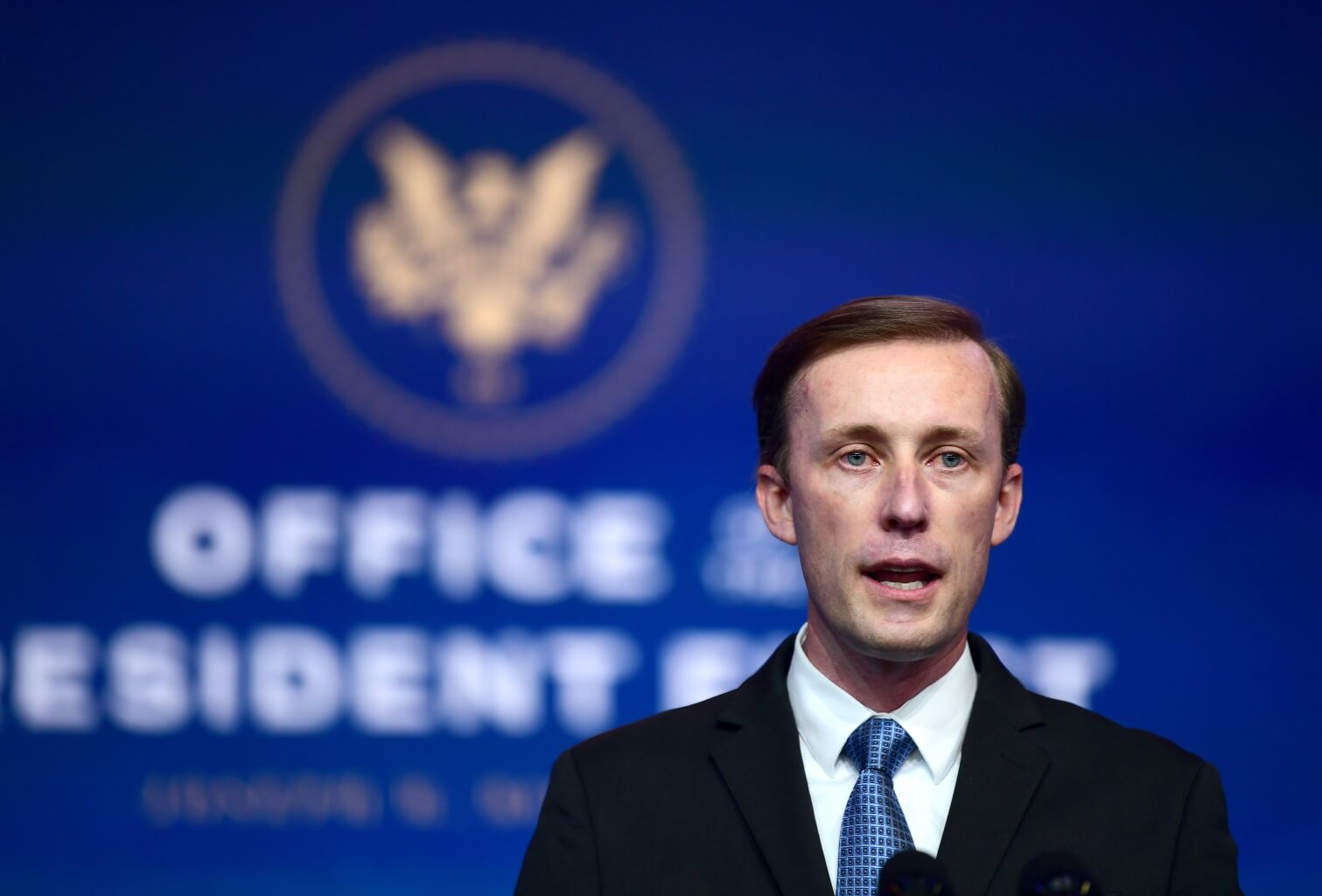The United States (US) has told Israel that diplomacy is the best way to contain Iran’s nuclear programme, reiterating US President Joe Biden’s preference for negotiations to revive the 2015 nuclear deal.
US National Security Advisor (NSA) Jake Sullivan told his Israeli counterpart Eyal Hulata on Tuesday that the Biden administration is committed to maintaining Israel’s security and “ensuring that Iran never gets a nuclear weapon.” He added that “diplomacy is the best path to achieve that goal.”
However, Sullivan noted that “the President has made clear that if diplomacy fails, the United States is prepared to turn to other options.” While he did not specify what options are being considered, it is widely believed that military actions are being considered.
Sullivan’s remarks come as there has been no progress in resuming the nuclear negotiations in Vienna between Iran and world powers. Since the sixth round of talks ended on June 20, there have been no signs of when the next round will resume. While the US and other Western powers have urged Iran to return to the table, Iranian hardliner President Ebrahim Raisi has shown little interest in resuming dialogue.
Tensions between Iran and the West have intensified recently, as Tehran has taken steps to increase its nuclear activity and reduce its cooperation with the International Atomic Energy Agency (IAEA). In August, the IAEA reported that Iran had taken steps to accelerate the enrichment of uranium to near weapons-grade levels. The nuclear watchdog has also accused Iran of jeopardising its monitoring work and “stonewalling” investigations into Iran’s past nuclear activity.
Israel has also been concerned about Iran’s nuclear activity and has repeatedly warned Iran that it would launch strikes on its nuclear reactors. Last month, Israeli Prime Minister Naftali Bennett accused Iran of “violating” the agreements with the IAEA and crossing “all red lines.” Noting that “Iran’s nuclear weapon program is at a critical point,” Bennett said Israel “will not allow Iran to acquire a nuclear weapon.”
Israel opposes any attempts to revive the 2015 nuclear deal and views Iran’s nuclear programme as an “existential threat” because Iranian authorities, including Supreme Leader Ayatollah Ali Khamenei, have called for the “annihilation” of the Jewish State.
Iran, on the other hand, has denied accusations that it plans to pursue a nuclear weapon and has said that Supreme Leader Ayatollah Ali Khamenei has issued a fatwa against the production of nuclear weapons. Tehran has repeatedly stressed that its nuclear programme is peaceful.
Moreover, Iran has said that its nuclear plants were subjected to three attacks last year, including cyberattacks. In April, Iran’s Natanz nuclear facility was sabotaged in a “terrorist act.” Iran has blamed Israel for the attacks on its nuclear plants and thwarting efforts to resume nuclear talks.
In 2015, Iran and the P5+1 (the United States, the United Kingdom, France, Russia, China, and Germany) signed the landmark Joint Comprehensive Plan of Action (JCPOA). The deal, which extended sanctions relief to Iran to significantly reduce its nuclear programme, seeks to prolong its “breakout capacity,” which is the time required to produce highly enriched uranium for one nuclear weapon.
However, the previous US administration, led by President Donald Trump, decided to withdraw from the JCPOA in 2018 and re-imposed punitive measures on Iran. After coming to power in 2021, President Joe Biden expressed a willingness to re-join the JCPOA and remove the crippling sanctions on Iran. Consequently, world powers and Iran have held intense negotiations in Vienna, Austria since April to restore the deal.
US Urges Israel to Approach Iran Nuclear Issue With Diplomacy as First Resort
The US also told Israel that it will pursue “other options” if diplomacy fails.
October 6, 2021

US National Security Advisor Jake Sullivan SOURCE: GETTY IMAGES
